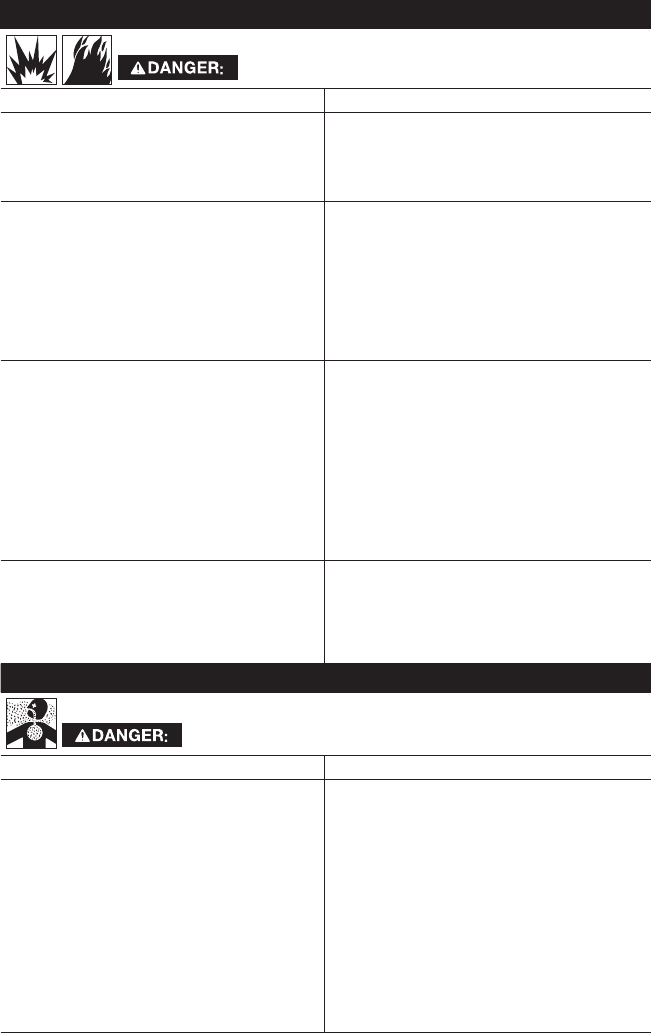
4 - ENG
N014212
HAZARD
RISK OF EXPLOSION OR FIRE
WHAT CAN HAPPEN HOW TO PREVENT IT
• Itisnormalforelectricalcontacts
within the motor and pressure
switch to spark.
• Alwaysoperatethecompressorina
well ventilated area free of combus-
tible materials, gasoline, or solvent
vapors.
• Ifelectricalsparksfromcompressor
come into contact with flammable
vapors, they may ignite, causing fire
or explosion.
• Ifsprayingflammablematerials,
locate compressor at least 20 feet
(6.1 m) away from spray area. An
additional length of air hose may be
required.
• Storeflammablematerialsina
secure location away from com-
pressor.
• Restrictinganyofthecompressor
ventilation openings will cause seri-
ous overheating and could cause
fire.
• Neverplaceobjectsagainstoron
top of compressor.
• Operatecompressorinanopen
area at least 12" (30.5 cm) away
from any wall or obstruction that
would restrict the flow of fresh air to
the ventilation openings.
• Operatecompressorinaclean,dry
well ventilated area. Do not operate
unit indoors or in any confined area.
• Unattendedoperationofthisprod-
uct could result in personal injury
or property damage. To reduce the
risk of fire, do not allow the com-
pressor to operate unattended.
• Alwaysremaininattendancewith
the product when it is operating.
• Alwaysturnoffandunplugunit
when not in use.
HAZARD
WHAT CAN HAPPEN HOW TO PREVENT IT
• Thecompressedairdirectlyfrom
your compressor is not safe for
breathing. The air stream may
contain carbon monoxide, toxic
vapors, or solid particles from the
air tank. Breathing these contami-
nants can cause serious injury or
death.
• Airobtaineddirectlyfromthecom-
pressor should never be used to
supply air for human consumption.
In order to use air produced by this
compressor for breathing, suitable
filters and in-line safety equipment
must be properly installed. In-line
filters and safety equipment used
in conjunction with the compres-
sor must be capable of treating air
to all applicable local and federal
codes prior to human consump-
tion.


















